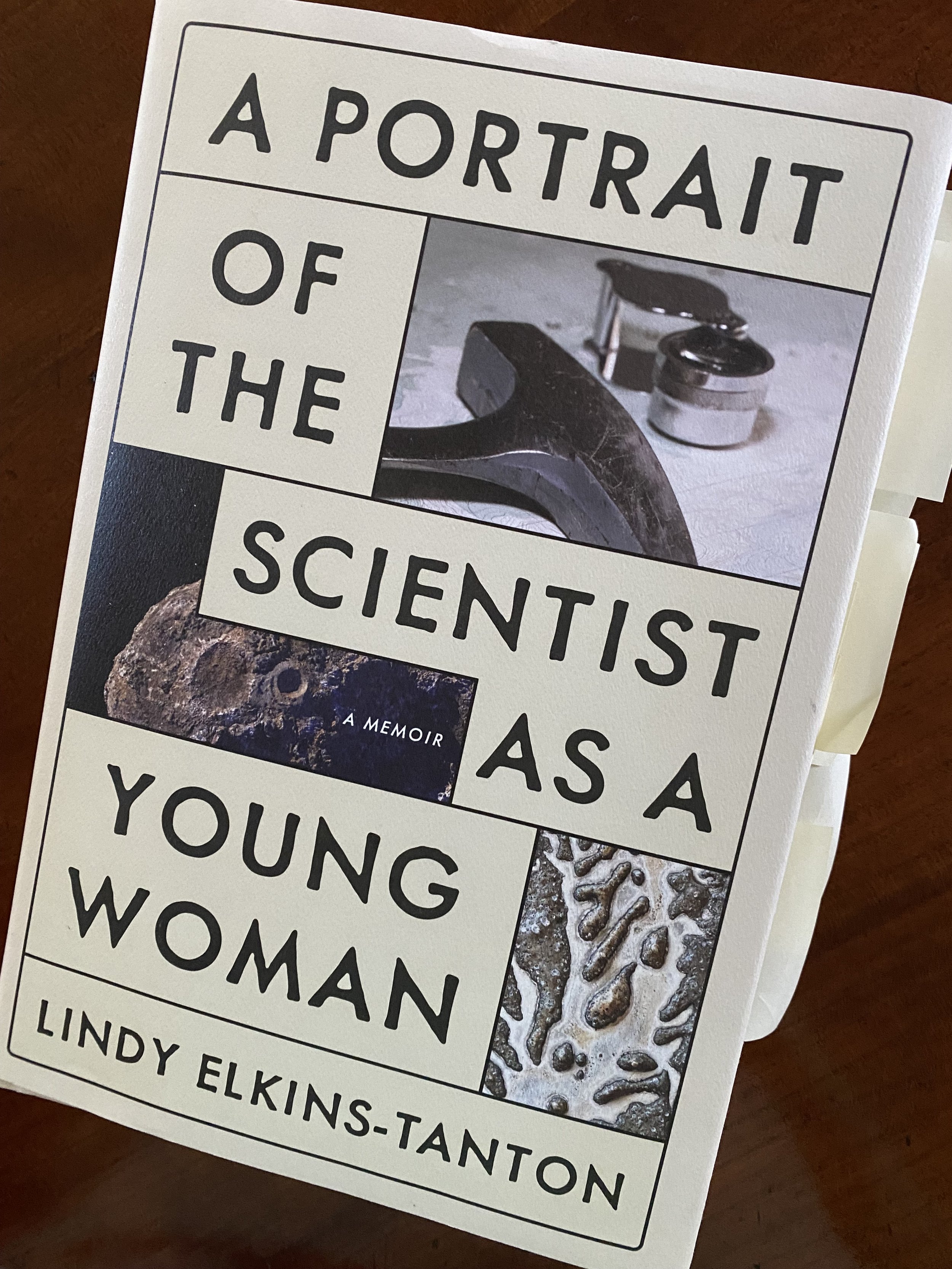Two women in science are about to become even more famous.
The fictional chemist Elizabeth Zott (Lessons in Chemistry), whose career is derailed by sexism, comes to Apple TV on Oct. 13. Her real-life counterpart, the planetary scientist Lindy Elkins-Tanton, leads an $800 million NASA mission to the asteroid Psyche that launches next Thursday, Oct. 5.
Their stories were published within weeks of each other. Since June 2022 when I spotted Elkins-Tanton’s memoire, Portrait of the Scientist as a Young Girl, in a Vero Beach, Fl., bookstore, I have been hyping her story to friends. The widely popular Lessons in Chemistry, No. 5 on the NYT bestseller list, is a rollicking tale, an indictment of sexism in higher education and an ode to science and love. The elegantly written Portrait of the Scientist as a Young Girl is that and much more, and I hope it will have a longer tail.
You cannot make this up. Like Zott, who winds up a TV cooking host when her advisor and rapist kicks her out of grad school, Elkins-Tanton detours from a science career, nagged by self-doubt despite earning a BS/MS in geology at MIT in four years. Teaching in a sleepy southern Maryland town, she confronts PTSD linked to childhood sexual attacks in woods near her home. Like Zott, she finds a love partner her equal. At 31 she returns to MIT for a Ph.D. Leads four field exhibitions to Alaska despite bad knees. Assembles an international team of scientists to collect hundreds of pounds of rocks in remote Siberian towns. Escapes a drunk Russian coal miner by stepping into a spa for a massage.
Chemists and physicists on her team calculate the temperature and pressure of sinking rock to confirm the process that leads to volcanic eruption, proving her idea about how molten rock formed and flooded Siberia. From particles on rocks, they link the eruption of gases like carbon monoxide to a mass extinction event 250 million years ago, a warning for our planet.
From rocks on earth, she moves to rocks in space. Gets her dream job at Arizona State University’s School of Earth and Space Exploration. Wins the NASA mission in 2015, just when she learns she has cancer, early stage.
Lindy Elkins-Tanton
Why forge ahead? Elkins-Tanton’s description of her pursuit of the unknown makes me want to join her team. It’s about the calm from working at the outer limits of knowledge, of going for the impossible. If Psyche is a piece of exploded planet, it might reveal what’s inside our own rocky planet. Or not. It might be rich enough in metal to supply Earth for ages. Or not. The liftoff might be grounded, as happened a year ago August, when NASA’s Jet Propulsion Lab encountered a software problem. It will take three years for the spacecraft to get close enough to Psyche to collect data. No matter what happens, she writes, “if you are sure of your values and your vision, then every unit of work, every day of effort, is a real piece of progress and of value in itself.”
This sounds familiar! The children’s doctor whose story I tell in A Heart Afire, Helen Brooke Taussig’s Battle Against Defective Hearts, Unsafe Drugs, and Injustice in Medicine (MIT Press, Dec. 2023) mapped the inner workings of defective hearts knowing there was no treatment for dying children. “If the problem in which you are interested in is right, it is an objective and goal in itself,” Helen told an audience of women scientists in 1954. Eventually, following scientific methods, somebody would find the answer. As she did, with her idea for life-saving heart surgery.
In style, the graceful Elkins-Tanton is more like Helen than Zott. She takes small steps to topple what she calls the outdated “hero” model: the autocrat directing doctoral students and taking all the credit. She forces the ouster of a serial abuser and convinces her professional society to make abusive behavior a disqualifier for membership. Her team of bantering physicists, chemists, astronomers, and engineers is a model of the collaboration needed to tackle questions bigger than any one discipline. With her son and husband, she developed and is deploying a student-driven learning system to inspire the next generation of scientists.
Her motto: Change begins with questions.
Helen would agree. And the question we should be asking is not whether women can be scientists, as she told women professionals long ago, but what problems scientists should try to solve.
Change begins with questions.


